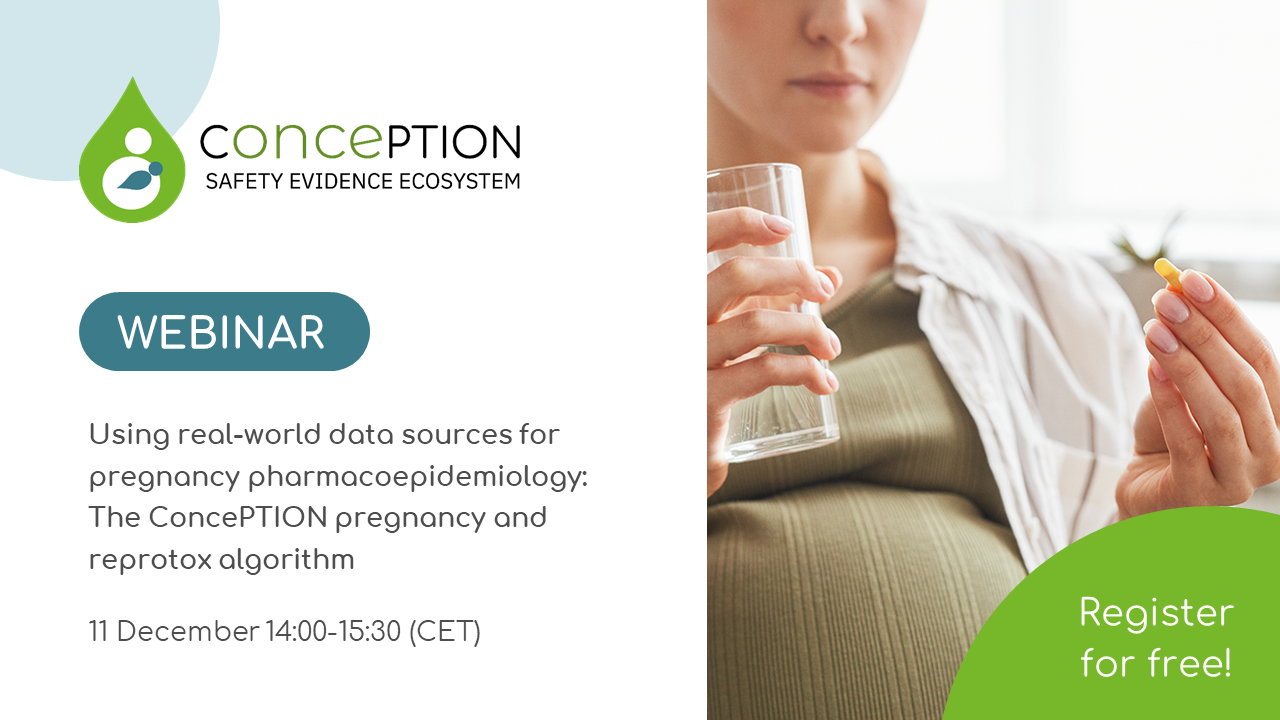Can we use real-world data to study medicine safety in pregnancy and lactation? Yes, we can! Join us on 11 December between 14:00-15:30 (CET) to learn more about our real-world data pipeline for pharmacoepidemiology studies and how you can use it for a range of research questions.
The ConcePTION data pipeline represents the pathway of data transformations from original data to the figures and tables displaying the results of a study as a sequence of five steps. During the webinar, Rosa Gini from ARS Toscana will present the pregnancy algorithm, with methods to create lists of pregnancies and recommendations for use. The presentation will also include a segment on validation of PPV to estimate sensitivity of study outcomes and adjust study results. Judit Riera Arnau from the University Medical Center of Utrecht will present an algorithm to prioritize teratogenic drug safety research. The algorithm is based on data obtained from animal studies and real-world evidence, and aims to assess the potential risk for individuals and society. Prioritisation scores are based on the prevalence of use, time trends, and repeated exposure. There will be opportunity to ask questions and discuss potential applications.
When: 11 December 14-15:30 CET
Where: Online via Zoom
Speakers: Rosa Gini & Judit Riera Arnau
Join our webinar! Register to receive a link →

Don’t have time to attend? The webinar will be recorded. A description of the ConcePTION data pipeline is available on a GitHub wiki, along with our Common Data Model documentation; catalogue of data sources; tools to support, extract, transform and load data sources to the ConcePTION Common Data Model; the INSIGHT real world data quality checks; the ConcePTION Pregnancy Algorithm; open-source functions to build and document study scripts; repositories of studies using the ConcePTION pipeline, and published studies based on the ConcePTION pipeline.
Want to learn more? Visit the ConcePTION pipeline wiki.